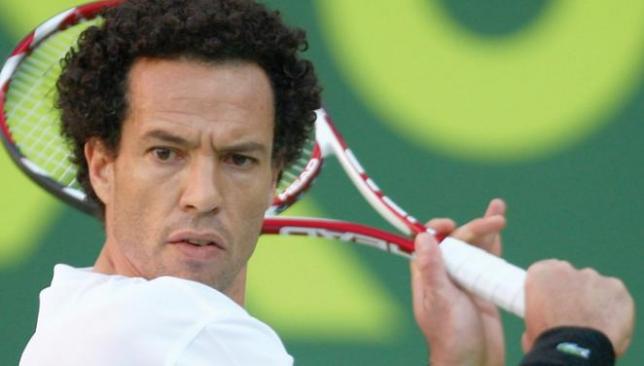
As the Australian Open came to a close with the longest final in Grand Slam history, it reminded me of another marathon clash that took place in Melbourne between former World No.14 Younes el Aynaoui, of Morocco, and American Andy Roddick.
Back in the 2003 quarter-finals, their 83-game match lasted exactly five hours. At the time it was the longest to ever be played at the Australian Open since the introduction of the tie-break in 1971 and it remains the longest match Down Under in terms of number of games.
El Aynaoui – who was 31 at the time – suffered a heart-breaking 6-4, 6-7(5), 6-4, 4-6, 19-21 loss that day to a young up-and-coming Roddick, who despite the 11 years that separated him and the Moroccan, shared the same goal of trying to reach their first ever Grand Slam semi-final.
Nine years later, El Aynaoui looks back at this match with more pride than disappointment. “For me now after a few years I can be proud that I played that match, but at the time, I was upset not to reach the semi-finals because I stopped four times in the quarter-finals of a Grand Slam and I never reached the semi-finals,” El Aynaoui told Sport360°.
El Aynaoui was one third of a trio of Moroccan players that stormed onto the tennis scene in the mid-nineties, and together with former world No.25 Karim Alami and former No.22 Hicham Arazi, they formed a golden generation the likes of Arab tennis had never seen before and hasn’t seen since.
El Aynaoui has no explanation why they all broke through together. “Honestly it’s a bit of a mystery. Hicham is a bit different because he grew up in France, he always lived in France. But me and Karim, we grew up in Morocco and we played tennis there since we were 18,” said the 40-year-old.
“And I think the fact that we were almost the same age and one pushing the other one. Karim started before me, really young he started to be good and that gave me motivation to also try to reach his level, and then I went above him and that gave him another push, so we were pushing each other to the top.”
Alami, the current Tournament Director of the Qatar Open and Al Jazeera Sport commentator, agrees with El Aynaoui, although he sees it more of a ‘miracle’ considering how little support they had at the time. “I think it was maybe a miracle for Arab tennis that there were three of us at the same time in the top 25 in the rankings,” said Alami. “That was really great for Arab tennis. I think we deserved where we were because nobody really helped us. Not our federation, not our government, I got to where I got by my energy, and my personal investment.”
But Alami, who plays an active role in the development of the sport through the Qatar Tennis Federation, is disappointed there haven’t been any Arab players in the top 100 since. “It’s a pity because they didn’t take advantage of us three players and our experience to really invest and teach the kids what we learnt on the Tour for 20 years. I work here in Qatar and I’m trying to give with all modesty what I learnt on the Tour to the kids and to my team here and everything but Younes and Hicham, they’re still there on the market and not one Arab country are calling them to take advantage of their experience.”
While Alami doesn’t see it as a lack of interest from the Arab tennis federations, he does believe a big part of the lack of success in the sport is due to the need for more financial support. “In tennis you need a lot of money, to travel, to have coaches, a lot of expenses, I think the sponsors have to help, the federation has to help, the ministry of sport of each country has to help. Because the tennis club gives the player… he has a program in the club and the player gets to a certain level and then the federation has to take over.
“You have to grab this kid and have a system and have professional training, because we’re talking about something very serious. You have to watch out what you eat, you have to know when to train, how to train, you have physical trainers, medical people around you, you have tennis coaches, it’s strategic, it’s technical, it’s not anymore just come and hit some balls, so if you want to become a good player you need all this. And this needs money, and you need professional people to do this and most of the time in Arab federations in general they have no clue about tennis.”
El Aynaoui believes education is another factor to be considered. “In our region we don’t have the chance to study and do sport at the same time. “I’m a father myself if my son wants to tell me I want to become Nadal or Federer I will tell him it might be safer to study. Maybe if we plan these kind of schools, where players can study and do the sport, that would be nice.”